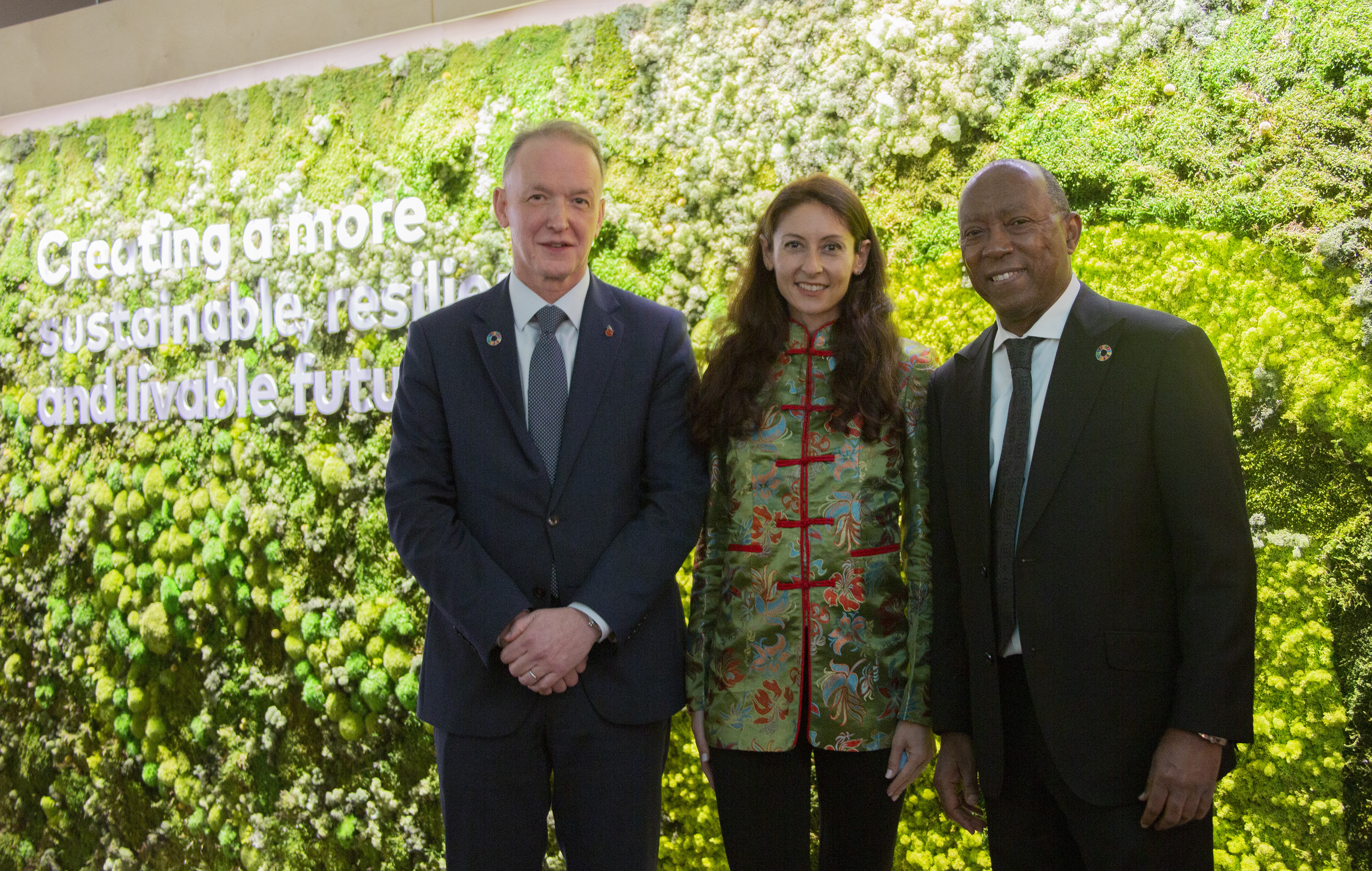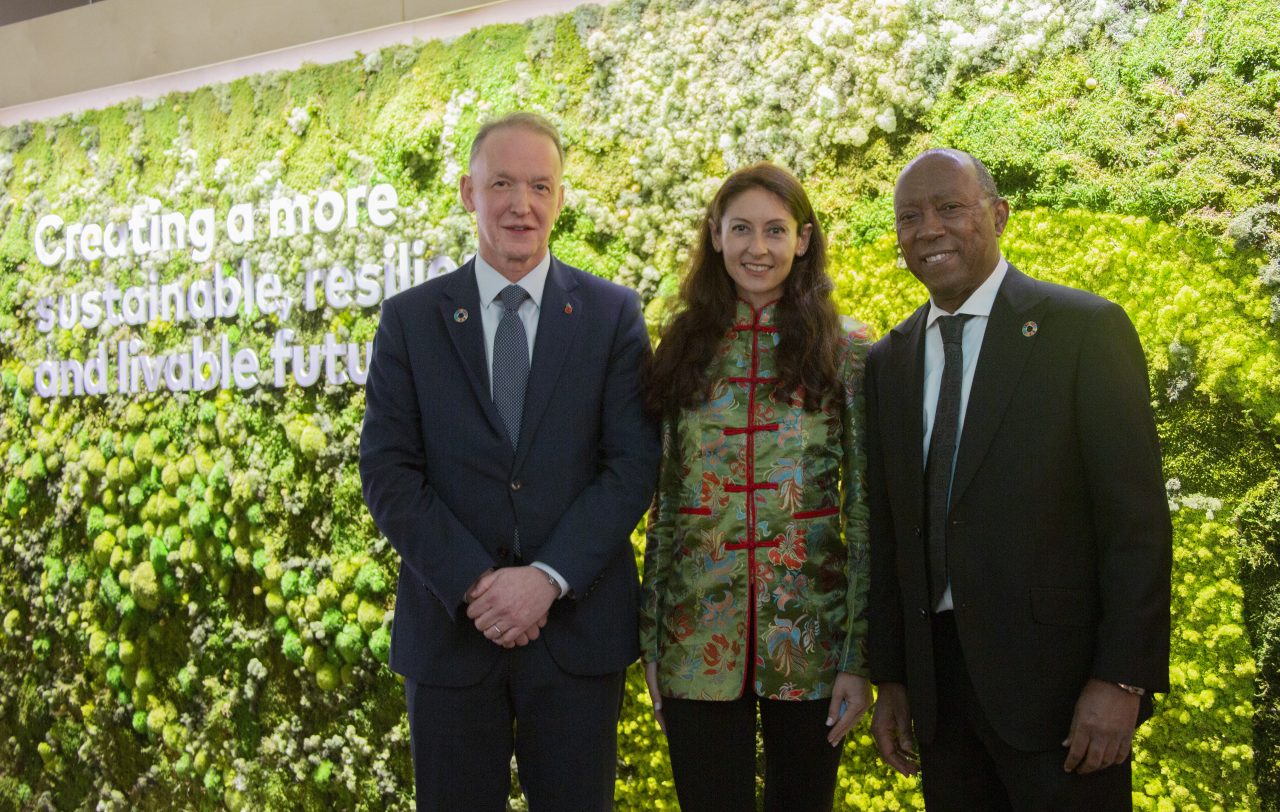| HOUSTON – Mayor Sylvester Turner, Board Chair of the Resilient Cities Network (R-Cities), participated in an announcement of the Resilient Infrastructure Diversity and Equity (RIDE) Scorecard. The announcement took place at the Wood House during COP26 in Glasgow.
The RIDE Scorecard provides a framework for assessing resilient infrastructure projects according to key criteria for social and racial equity, the creation of green jobs, and climate-readiness. R-Cities is an independent city-led global non-profit organization that promotes urban resilience, today announced the
The RIDE Scorecard is the first of its kind to provide a transparent and fair methodology for evaluating the equity of proposed resilient infrastructure projects. The tool is structured in such a way that allows for flexibility and adaptation for cities to tailor use according to an individual community’s economic and geographic priorities with scoring criteria that can be weighted.
“Cities can drive the actions, partnerships and investments necessary to become resilient. However, as city leaders, we know we can no longer simply fortify structures – the structures themselves do not make a resilient society. We must approach investments holistically,» said Mayor Turner. “Cities are seeking a new way to evaluate infrastructure investments that priorities social and racial equity and makes transparent the immediate and long-term benefits to people. The new RIDE Scorecard gets it done.”

Pictured from left: Robin Watson (Wood CEO) and Lauren Sorkin (Resilient Cities Network Executive Director and Mayor Turner
“Infrastructure projects need to be designed to meet the needs of communities and people first,” said Lauren Sorkin, Executive Director of Resilient Cities Network. “Urban resilience is not only about structures that can withstand extreme weather and other shocks and stresses – it’s primarily about improving the quality of life for all city dwellers on an ongoing basis. With this goal in mind, infrastructure projects need to incorporate measures of social equity – including job creation – as an essential part of the deliberative design process. This Scorecard enables this type of disclosure.”

Resilient Cities Network worked in partnership with global engineering and sustainability consultancy Wood to develop the RIDE Scorecard. The process included reviewing a worldwide pipeline of city projects in areas of energy and transportation looking specifically at each project’s stated priorities for addressing equity, contributions to the green jobs sector, as well as factors to increase resilience to a changing climate.
The Scorecard aims to help cities reimagine what is meant by climate-ready infrastructure. It places social and racial equity on the same level as the evaluation of traditional structural design elements and financial feasibility of a planned project. It prioritizes projects that embed equity into project design early in the process.
“All investments in new infrastructure must contribute to the long-term health and well-being of the most vulnerable in our society,” said Ron Harris, Chief Resilience Officer for the City of Minneapolis. “The RIDE Scorecard allows us to identify and maximize the co-benefits of equitable and green infrastructure and as a Chief Resilience Officer it will help me to support our staff and guide policy makers in our efforts to center equity and resilience.”
R-Cities and Wood structured the methodology behind the Scorecard to be flexible, responsive and adaptive to work in a variety of context around the world, including advanced economies, emerging markets, as well as under invested places. An individual local authority can build upon the Scorecard and tailor it to meet the nuances of their specific project environment.
The Scorecard is currently in beta version. Interested cities can work with the Resilient Cities Network to test their projects beginning in 2022.
About Resilient Cities Network
Resilient Cities Network is a global city-led non-profit organization of 97 member cities in 41 countries that brings together knowledge, practice, partnerships, and funding to empower cities to help them build a safe, equitable, and sustainable future for all. Resilient Cities Network integrates the combined effort of urban practitioners, city governments, and communities in a collective, comprehensive, and well-coordinated call-to-action to deliver urban, impact-driven resilience solutions. |
